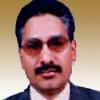 |
||
|
Welcome | Malaysia & Pahang | Taman Negara | Messages | Organisers | Speakers | Conference Venue | REGISTER NOW | Accommodation | Pre/Post Tours | Conference Program and Sessions| Sponsors | News & Updates | CONTACT US |
||
1) Name: Rabi Jung Pandey2) Date of Birth: January19, 1956 3) Nationality: Nepali 4) Address for correspondence: P.O.Box 2224, Kathmandu, Nepal
5) Telephone (Home): 00977-1-4700638, 00977-1-4701088 Fax : 00977-1-4269770 Email: rjpandey_trpap@ntb.org.np , rabi@paknajol.wlink.com.np 6) Education: M.Sc. in Tourism Management, University of Surrey, U.K.1994 - 95 MBA (Master of Business Administration) India. 1977 - 80 D. Ag. Ed. (Diploma in Agricultural Education) Nepal. 1974 - 767) Other Professional Trainings: o Appreciative Participatory Planning and Action Training 2001 o In-Country English Language Training o The British Council, Kathmandu, 1994. o Personnel Administration, o Public Service Commission, Nepal, Kathmandu, 1982. o Management Training o Durgapur Steel Plant, West Bengal, India, 1978. o English Language Training o United States Information Service (USIS), Kathmandu, Nepal, 1971.
8) Languages and degree of proficiency: Language Read Write Speaking 1. English Excellent Excellent Excellent 2. Nepali Native Excellent Excellent 3. Hindi Excellent Excellent Excellent 9) Member of Professional Organisations:
10) Employments Records:
11) Tourism Research Activities:
September 2001 - till date.
· Tourism Standards Development Specialist - for Tourism Sector Development Project, Asian Development Bank. TA NO. 2685 NEP. May to August 1997.
12) Participation, and Paper Presentation: · Bay of Bengal Initiative for Multi-Sectoral Technical and Economic Cooperation (BIMSTEC), 2nd BIMSTEC Tourism Ministers' Round Table & Workshop, 28 - 30 August 2006, Kathmandu, Nepal · Promoting Community Base Tourism in Nepal, Kathmandu, Nepal, 26 June, 2006 · Culture, Tourism and Poverty Alleviation: Conservation of Local Arts and Culture, Kathmandu, Nepal, 24 February 2006 · Efforts on Poverty Alleviation through Community Based Rural Tourism Development Model in Dolpa, Kathmandu, Nepal, 21 February 2006, Jointly organized by Malika Community Development Center, Mugu with Poverty Alleviation Fund (PAF), SNV-Nepal and ICIMOD. · Result Based Monitoring and Evaluation Workshop, United Nations Development Programme, Kathmandu, Nepal, 23 25 January, 2006 · Local Economic Development through Rural Tourism, Forum of the North - South Solidarities, Marseille, France, December 1 3, 2005. · Participation at World Tourism Market (WTM), London, United Kingdom, November 14 - 17, 2005. · Participation at International Tourismus Borse (ITB), Berlin, Germany, March 11 15, 2005. · A High Level Study Visit on Community Based Tourism of South East Asia, Thailand, Vietnam and Cambodia, December 11- 22, 2004. · Tourism Policy Forum: Tourisms Potential as a Sustainable · Development Strategy, Organised by UN WTO and Gerge Washington University (GWU), October 18-20, 2004, Washington, D.C. USA. · Collective Enterprises Development, Opportunities and Constraints of Collective Enterprise Development in Rural Nepal, March 6-7, 2003, Kathmandu, Nepal
· ATLAS Africa conference - Community tourism Options for the future, Arusha, Tanzania, 20-22nd February 2003
· Intercultural Management and Team Building Workshop, February 7-9, 2003, Nagarkot, Bhaktapur, Nepal
· Culture, Heritage Management & Tourism - A UNESCO International conference/workshop for the enhancement of stakeholder cooperation in Asia and the Pacific, April 8 - 16, 2000, Bhaktapur, NEPAL.
· Model Tourism Village, Workshop organised by Department of Tourism - 19th June 1998, Pokhara, Nepal.
·
MICE Marketing
Workshop organised by Nepal Incentive and
· Regional Co-operation in Tourism, South Asian Association for Regional Cooperation (SAARC) Chamber of Commerce and Industry Tourism Council, Seminar Cum Governing Board Meeting, 26 - 28 December 1996.
· Customer Care in the Hospitality Industry, Global Trends in Tourism, Workshops Held at Kathmandu on February 1996, by Restaurant, Hotel, Institutional Management Institute, Purdue University, Indiana, U.S.A.
· Mountaineering Liaison Officer Orientation Programme, Ministry of Tourism, Kathmandu 20 - 28 February 1992.
· National Workshop on Negotiating with Transnational Corporation in the Tourism Sector. Kathmandu, Nepal 10 - 15 December 1989.
13) Publications: Various Articles on Tourism
14) Country Visited: India, Pakistan, U.A.E., Germany, France, United Kingdom, United States of America, Kenya, Tanzania, Thailand, Vietnam, Cambodia, Austria
Challenges in running a community based ecotourism project - TRPAP
Abstract Tourism in Nepal has considered as one of the important industries to earn foreign currency. Therefore, the government has been more apprehensive on promoting this industry with higher priority. It has thought that, ecotourism being an employment-oriented industry; it could solve the unemployment problems, if it is expanded to different additional areas of the country.
Therefore taking these facts into consideration, it has been initiated to develop ecotourism with wider objectives. It affects the livelihoods of the community in multiple ways. Impacts on livelihoods and not just income need to be assessed along with the variety of positive and negative affects. Differential impacts between poor groups, particularly the fairly poor and the poorest, can be expected. The poor are more vulnerable to the main negative impacts, such as conflicts with other livelihood strategies through loss of natural resources, and vulnerability due to local inflation. They face the greatest barriers to seizing economic opportunities created by tourism.
Community based ecotourism generates net benefits for the community (i.e. benefits are greater than costs). Usually, there is a tendency to judged benefits only in terms of economic benefits only. However, social, environmental and cultural costs and benefits also need to be taken into account. Therefore, ecotourism strategies need to be considered specifically with impacts and opportunities for local people.
Similarly, these strategies have to be integrated with general tourism development for two reasons: (i) mainstream activities (such as tourism planning) need to be influenced by community participation; and (ii) ecotourism cannot succeed without successful development of the whole tourism destination.
|

